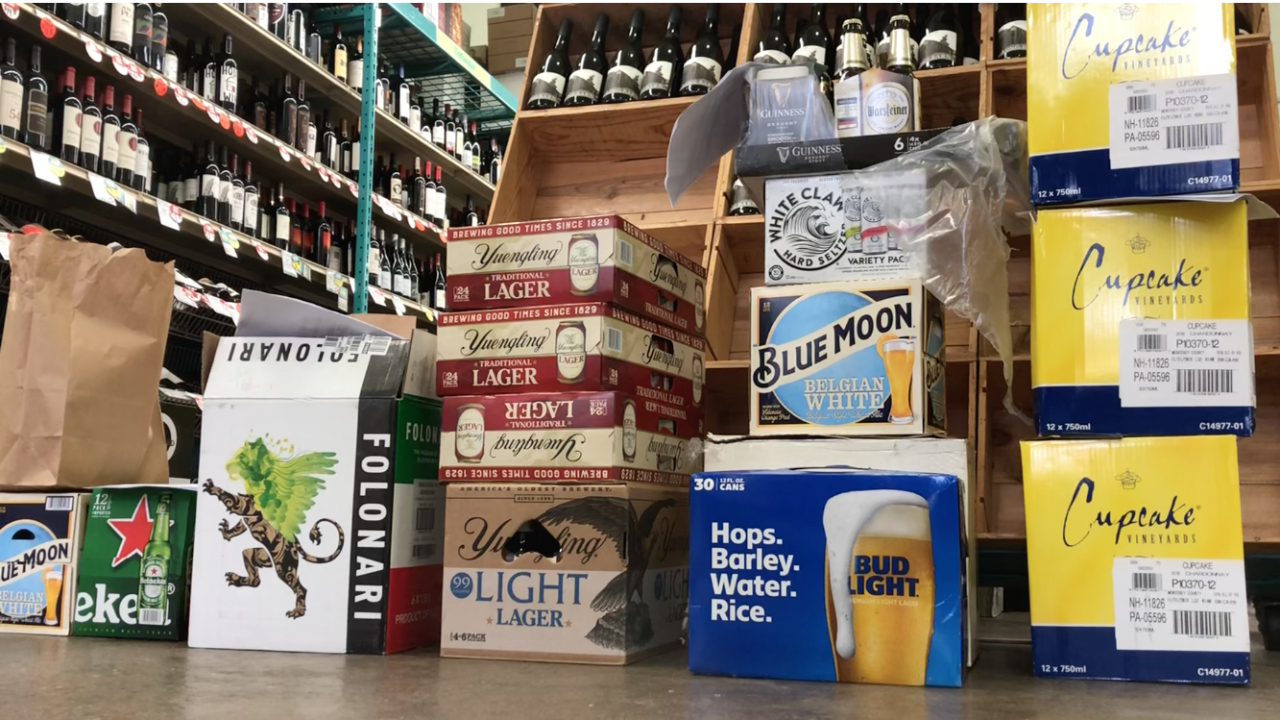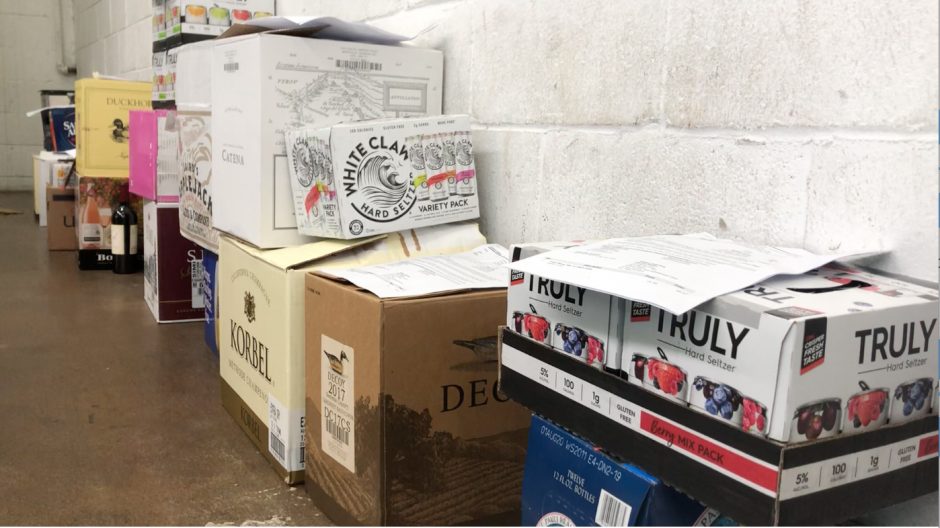
SYRACUSE, N.Y. (NCC News) — Alcohol sales are on the rise amid the coronavirus pandemic. AP is reporting that alcoholic beverage sales are up 55% from this time last year, according to Nielsen. Now, some liquor stores can barely keep up with the boom in business.
Liquor City in Fayetteville is now offering curbside pickup and delivery in addition to allowing shoppers inside the store. Manager Bill Murray was barely able to speak with me as the store tries to keep up with demand.
“We’re up to our eyeballs in curbside pickups,” Murray said.
Liquor Warehouse Syracuse has also seen an increase in traffic flow in store with Manager Ryan Koelsch occasionally needing to cap the number of customers allowed in on Fridays and Saturdays. But, Koelsch said their biggest stressor has been keeping the shelves stocked.
“There has definitely been a little bit of elevated stress in dealing with our suppliers as their windows of availability for deliveries are up in the air,” Koelsch said.

Koelsch also saw people buying in bulk in mid-March, making profits soar.
“Business is 20% better, at least, than this time last year,” Koelsch said.
Dr. Joseph Ditre and Dr. Afton Kapuscinski, both psychology professors at Syracuse University, saw this spike in alcohol sales as a combination of two main psychological factors: A person’s desire to reclaim control amid unpredictability and the use of alcohol to cope with negativity.
Both professors first compared the boom in alcohol sales to any behavior of stocking up or “panic buying” during this pandemic because people’s perceptions of supply and demand are tainted with a lack of control.
“When there are lots of unknowns, people will try to limit the number of unknowns,” Ditre said. “In this time of uncertainty, leaning toward having more could mean less things to worry about.”
Both Ditre and Kapuscinski added that alcohol purchasing could specifically be increasing at this time because people often rely on alcohol to cope with stress.
“When their ability to cope is stretched to the max, they will look for a quick fix,” said Kapuscinski.
Ditre added, “This is an extremely salient time for those who have past patterns of alcohol use to cope with those motivators like anxiety and loneliness.”
Both cited that the increase in unemployment and the amount of time spent in isolation could also be driving factors for alcohol use during this COVID-19 pandemic.
Ditre recommends people look for positive ways to cope through self-quarantine rather than the negative reinforcement alcohol can provide.




